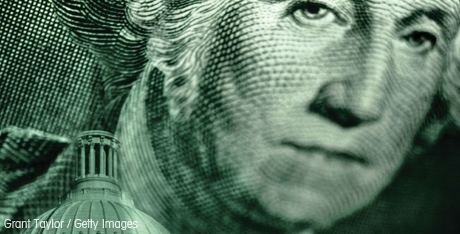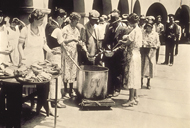The Dream Is Dead
Or at least on life support. I am not alone in recognizing today’s threats to the American Dream, articulated in 1931 by historian James Adams: “Life should be better and richer and fuller for everyone, with opportunity for each according to ability or achievement.”
We’ve heard ample warnings from all sides, and Time magazine ran an excellent historical perspective with this quote from the U.S. Department of Commerce: “It is more difficult now than in the past for many people to achieve middle-class status because prices for certain key goods — health care, college and housing — have gone up faster than income.”(1)
Our success in addressing past challenges depended on the ability of our leaders to govern.
Evidence of the dream’s demise is evident in growing income inequality and decreasing social mobility (a measure of whether poor children can become rich over the course of their lives). Specifically, average income has flat-lined since the 1970s, while total income going to the top 1 percent has more than doubled.(2) Social mobility is lower in the U.S. than Nordic countries and Canada and just ahead of Britain, a country infamous for its class constraint.(3)
Explanations for the cause of the decline and its consequences are many; perhaps you have your favorite?
Long Live the Dream!
Startling as the numbers are, many believe in the American exceptionalism that has seen us through civil war, invasion, debt, depression, dust bowls and world wars. It is true that we are a nation forged in adversity that responds well to emergencies. But our success in addressing past challenges depended on governance — the ability of our leaders to make and execute on decisions.
I will argue that our system of government — the legacy of our radical and audacious founding fathers — has been derailed by the very market forces, spirit of enterprise, and individual freedoms that justify our claims to be extraordinary. To quote Florence King, “People are so busy dreaming the American Dream, fantasizing about what they could be or have a right to be, that they’re all asleep at the switch.”
Perhaps the most direct symptom of our broken system is the increased congressional gridlock, measured by the increasing delay in confirmation to executive office(9) and increasing use of filibusters and their antidote “clotures” in the Congress.(10) There are also other indicators. The electorate has become more polarized: Pew Research reports that since 1987 the average partisan gap has nearly doubled, from 10 percent to 18 percent.(11) And we engage less in the process — voter turnout has declined steadily from 90% in 1968 to 42% in 2010.(12)
So, the solution is simple, right? Throw the corrupt politicians, and the lobbyists who pay them, off the island.
How Did it Die?
And what can we do about it? I’ll answer both questions by drawing heavily on a book by Harvard Law Professor Lawrence Lessig, Republic, Lost: How Money Corrupts Congress — and a Plan to Stop It,(13) which presents the most coherent explanation I’ve seen about the root cause of the problem. His argument goes like this:
• The framers of our Constitution gave us a republic, by which they meant a representative democracy “dependent upon the People alone.”
• However, Congress has evolved from a dependency “upon the people” to an increasing dependency upon the funders. Members spend 30 to 70 percent of their time raising money to stay in Congress or to get their political party back in power.
• The people are not the funders. Less than 1 percent of Americans give more than $200 per election cycle. No more than .05 percent gave the maximum ($2,500) in any Congressional campaign. Two-thirds of all political donations come from 0.26% of the population,(14) meaning the average American is simply not represented in this funding stream.
• Recognizing the system’s dependency on funders, 75% of Americans believe that money buys influence in Washington.
• Money in politics has eroded our trust in our political institutions. Only 6% of Americans have a great deal of confidence in Congress, the lowest score in more than 50 years.(15) As Lessig puts it, more people probably had confidence in the monarchy at the time of the American Revolution than have confidence now in our own government.
The Simple Solution
So, the solution is simple, right? Throw the corrupt politicians, and the lobbyists who pay them, off the island. Alas, not in this reality show. The truth is, despite the occasional bad actor, the majority of modern law makers and lobbyists are upstanding individuals with the best interests of their country at heart. Consider that until 1853, bribing members of Congress was legal, and lobbyists did so with impunity.(13)
Contrary to public perception, lobbyists are not the glad-handing, mile-a-minute-talking salesmen who can sell sunshades to raccoons. They are more like glorified policy wonks who work for the legislators with whom they agree. Some would even argue that lobbyists are a “corporate memory,” without which government would be less efficient.
The effect of money on our governance is subtle. With the need to raise so much cash, politicians (of both parties), who are nothing if not quick learners, develop a sixth sense for what issues will generate funds. They learn to “lean to the green” to favor those issues and positions for which there is ample financial backing. For this they earn the time and attention of lobbyists, think tanks, and others who can help them understand complex issues and draft legislation — and, oh yes, assist them in raising money for reelection.
Money influences the agenda in Washington. As a result, issues that don’t have a lot of money behind them (think unemployment and education) don’t receive the attention of legislators and thus languish. Meanwhile, the issues that are well-funded by corporate backers (think the debit card swipe fee) are debated to death. This latter issue consumed the Congressional agenda for the first four months of 2011; and not coincidentally, the banks gave more than $18.8 million to federal candidates, committees and parties through November 2010.(16)
Our reality-show mindset has another implication: Because those legislators who make extreme statements have an easier time raising funds than those who don’t, our Congress has become, not unlike “Jersey Shore,” a screaming match between publicity-seeking prima donnas.
“Like all dreamers, I mistook disenchantment for truth.” — Jean-Paul Sartre
A More Complex Solution
With so many investors in the current system — politicians, the media, special interests, etc. — it’s easy to see that the institution will hardly change itself.
Lessig’s solution is to make the people the funders, with each citizen purchasing (from their federal tax) a $50 “democracy token,” which they can allocate to the politician or party of their choice; any unallocated money goes back to the Treasury. The resulting $6 billion or so would amply grease the gears of the existing media-electoral complex, but with subtle changes. Including (my argument, not Lessig’s):
• Less “bear baiting” on TV, the rationale being that many funders will be turned off by the outrageous statements, so politicians “leaning to the green” would have to appeal to the broader middle. This would be naturally reflected in the media.
• A decreasing role for the wealthy, and corporations. The change would require a constitutional amendment.
But that’s been done before, and indeed Jefferson theorized that constitutions should be revised often “since accumulated knowledge must make later generations wiser than any that drew up any old document.”(17)
Who Cares?
Of course, the public may want angry windbags as their evening entertainment; after all, dramas are more popular than documentaries. Likewise, there are those who believe that corporations pay taxes and should have more of a role in political decisions (spotted on a recent bumper sticker: “I’ll believe corporations are people when Texas hangs one.”). And of course, restricting what the wealthy can do with their money is somehow antithetical to the American way. Or is it? Governance by the privileged is akin to the conditions that precipitated the events of 1776. The election cycle is getting into full swing, and it’s giving us a glimpse of where our current system is leading us, both in terms of who funds the campaigns and our future ability to govern ourselves. Dream or nightmare? Let me know what you think.






Sources